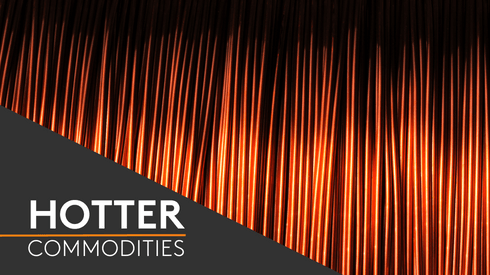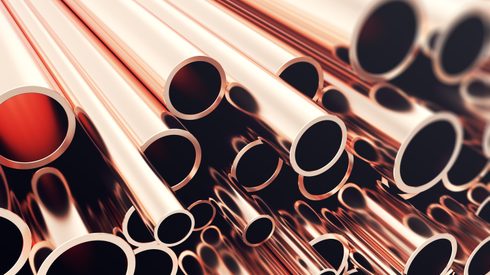There were all the signs of a boom period for the steel industry at the event, with the exhibition hall of the city’s Mandalay Bay Hotel packed with displays of the latest technology and machinery.
Demand for machinery from steelmakers and scrapyards is on the rise, exhibitors said, with scrap merchants emboldened by high metals prices, a strong economy and reforms to the tax code in the United States.
Indeed, equipment sales have been so strong that lead times for some products stretch into delivery next year, according to equipment producers at the event.
And despite some shorter-term challenges such as an imminent fall in US scrap prices, sentiment at the event was positive for the year ahead on the part of most traders and scrap market participants.
Falling scrap prices
Turkish import scrap prices took another tumble last week, with rebar demand in the country on the wane. But perhaps more significant was the re-entry of US sellers into the deep-sea scrap market for the first time since mid-February.
Metal Bulletin’s daily index for US-origin HMS 1&2 (80:20) was $351.47 per tonne cfr on Friday April 20, down by $7.98 per tonne week-on-week.
Market participants agreed that the re-emergence of US sales, after an interval that lasted more than a month, was a sign that Turkish import scrap prices could fall further.
European export dock prices for scrap and Turkish rebar prices have both fallen since the US-origin sale was digested by the market, and one seller predicted that Turkish buyers would try to push scrap prices down again in the near future.
One buyer said that the price of US export shredded scrap sold to the Indian subcontinent was likely to drop by around $10 per tonne over the next week due to weaker market fundamentals.
As a result of high levels of scrap supply and low deep-sea market sales activity, sources at the event also predicted a fall in US domestic scrap prices for shredded scrap in May’s monthly settlements, particularly given the recent tightening of the premium of US domestic No1 busheling over shredded scrap.
US scrap imports
With US scrap sellers slower to reduce their prices for export or domestic sales than their European counterparts, some Europe- and UK-origin sellers have seized the opportunity to offer ferrous scrap material to the US.
Around 10 cargoes from Europe or the UK were on their way to the US at the start of April, Metal Bulletin heard. One UK-origin cargo comprising 24,000 tonnes of shredded scrap was heard sold at $390 per tonne cfr on April 3.
One European seller said on the Las Vegas conference sidelines that he had received a healthy number of inquiries from US scrap buyers at the event, and he expects more ferrous scrap material to be imported into the US in the coming months.
The US imported 312,000 tonnes of ferrous scrap in January 2018, according to the International Steel Statistics Bureau (ISSB).
Section 232
Although most delegates at the event believed that the Section 232 steel import tariffs recently imposed by the US were, overall, positive for the country’s domestic scrap prices, there was concern among attendees that recent exemptions had “watered down” the trade defense measures.
Japan is hoping to achieve an exemption when Prime Minister Shinzo Abe meets US President Donald Trump this month, the former US Secretary of Commerce, Carlos Gutierrez, said at the event.
Permanent or temporary exemptions have already been given to South Korea, Australia, Argentina, Brazil, Canada, the EU and Mexico.
In the light of these exemptions, some delegates said that Trump’s approach to the issue had been to make a large noise before stepping back and actually taking a more measured approach.
But should the temporary exemptions for areas such as the EU and Brazil be allowed to lapse when they expire in May 2018, there could yet be more upside for steel prices, attendees said.
Quality issues
With China announcing a total ban on imports of category 7 copper and aluminium scrap by the end of this year, and on the imports of many other non-ferrous scrap items – aside from Category 6 aluminium and copper scrap grades – by 2019, one industry source said on the conference sidelines that the chance of a mellowing in China’s rhetoric on the subject was effectively gone.
In fact, the announcement essentially accelerated China’s National Sword policy and signaled to the industry that it will need to adapt to the resulting shifts in global trade, delegates said.
One European scrap source said that reductions to the carried waste thresholds on material entering China were fair, and signaled an end to the country buying US-made “rubbish”.
With China’s giant scrap-consuming sector cracking down on purity standards in imported scrap material, and focusing efforts on developing its domestic recycling business, rumors have circulated about the possibility of a total ban on imports of all ferrous and non-ferrous scrap material at some point in the future.
The issue of quality was not just reserved to discussions about China, however. A common theme among scrap processors at the event was that US ferrous scrap consumers are increasingly asking for more information about the chemical composition of the scrap they are buying.
Some steel mills in the Ohio Valley region, for example, have refused to take material containing any detectable proportion of phosphorous. For shredder yards, attendees said, this is particularly difficult to control because their inflows of obsolete material are of inconsistent quality.
Lisa Gordon and Brad MacAulay, both in Pittsburgh, contributed to this report.





